
Key points
- Dogs can get concussions just like humans. Falls from high altitudes, car accidents, collisions with furniture, and other head bumps or kicks are the most common causes of concussions;
- Smaller breeds and puppies are more likely to get a concussion;
- The most frequent signs of canine concussions include problems balancing or walking, vomiting, and different sizes of pupils;
- If you see that your dog is injured, take it to a veterinarian right away. If a severe concussion is not recognized and treated in time, it can result in long-term damage.
The word “concussion” is typically associated with sports. People who play football, box, ice skate, or do any other kind of sport are more inclined to suffer a traumatic brain injury. However, a concussion can happen to everyone, and our dogs are not an exception. The symptoms of canine concussions often show up much later after the incident, or they may seem harmless at first and then get worse as the brain gradually becomes more swollen. This is why it is important to know what signs of canine concussions look like and what you can do if you suspect that your dog may be suffering from a concussion.
Table of Contents
What is a Concussion?
The Concussion Legacy Foundation defines concussion as “a serious injury to the brain resulting from the rapid acceleration or deceleration of brain tissue within the skull”. The movement makes the brain tissue change its shape, thus stretching and damaging brain cells. In turn, this leads to metabolic and chemical changes within the brain cells, which makes it hard for the cells to function.
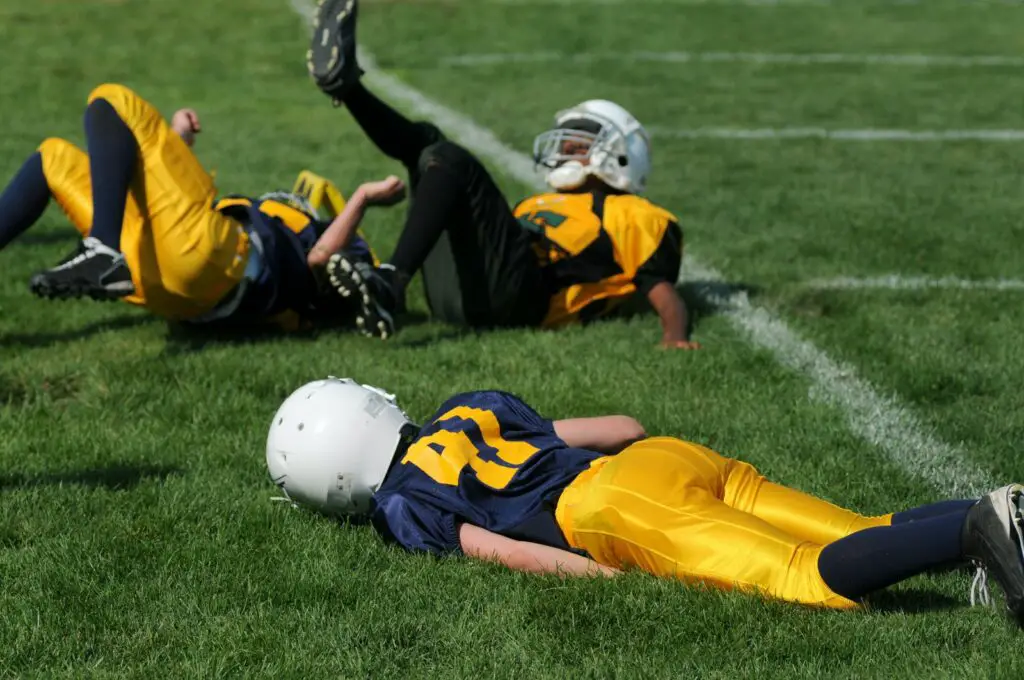
According to the Center for Disease Control and Prevention, Americans suffer from almost 4 million concussions every year. Although no precise statistics are available regarding dogs, concussions are the most common form of head trauma in canines.
Causes of Concussion in Dogs
In general, dogs have stable and thick skull bones. This can protect their brain well and cushion shock and impact. In addition, dogs’ brains are protected by cerebrospinal fluid, a fluid located between the brain and the top of the skull. Nevertheless, some trauma can be so intense that the brain hits the inside of the skull wall as a result. This can damage the brain tissue and, in severe cases, lead to swelling. Even an accidental kick can cause a concussion in small dogs and puppies.
According to Dr. John McCue, a veterinary specialist in internal medicine and neurology at the Animal Medical Center of New York City, vehicle accidents are among the most common reasons for concussion in dogs. This is why you should always keep your pet on a leash or closely supervise it near roadways. This is especially important for people living in urban areas.
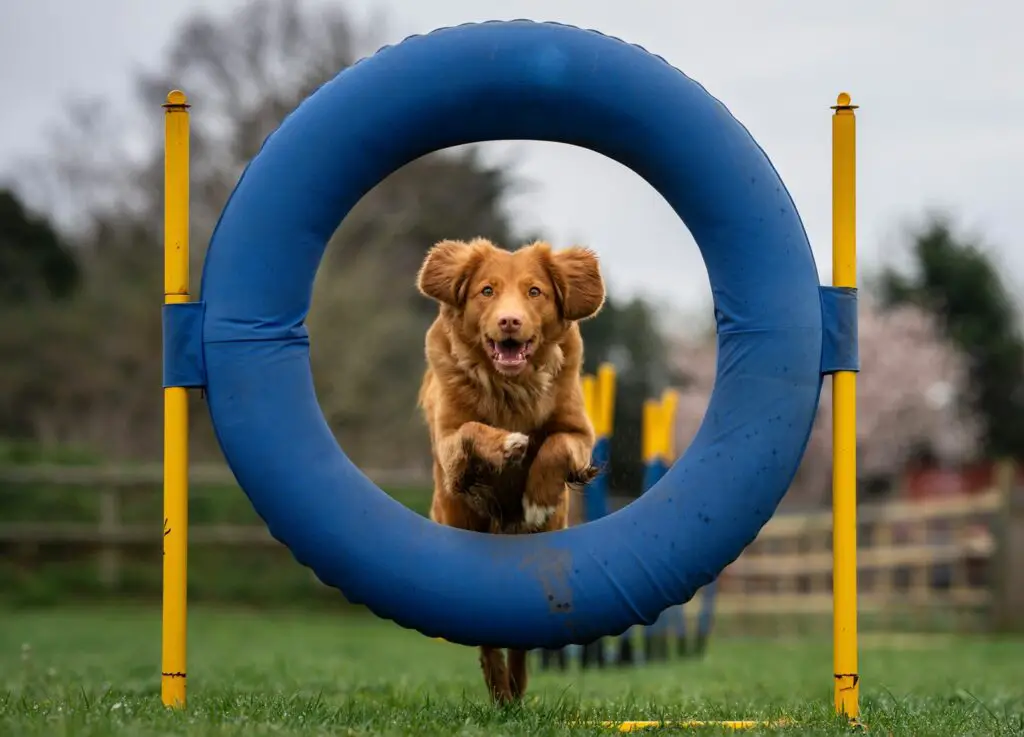
Also, if you drive with your dog in a car, remember that it has to be restrained. A dog seatbelt can prevent the pet from getting a concussion.
Blunt force trauma is another common group of head trauma in dogs. Unfortunately, abuse is another common reason for canine concussions. If a pet owner hits their dog hard enough, the pet can suffer from a concussion.
Other things that may cause blunt force trauma include falling from high altitudes, colliding with trees or heavy furniture, running into a glass door, getting hit by large farm animals or a baseball bat, and experiencing head bumps or kicks during rough play. It does not matter if the blunt force trauma is accidental or intentional, as it can lead to a concussion either way. Dog fights are also a common cause of concussions, so you should not leave your pet unsupervised when introducing it to other unknown dogs.
Toy breeds such as Chihuahuas and puppies with open fontanels (soft spots in a dog’s skull where bones haven’t fused together yet) are particularly prone to concussions. The severity of a head injury can be difficult to assess without an exam because internal swelling or bleeding may be invisible. Therefore, it’s always best to get urgent medical help for suspected concussions in dogs.
Concussion Symptoms in Dogs
Dogs usually cope with light head bumps without any problems. However, if your dog is hit particularly hard, you should observe it for signs of a concussion. The symptoms are more or less easy to spot, depending on how severe the traumatic brain injury is.
Pay close attention to your dog after an accident, fall, or blow to the head. Remember, if your dog becomes unconscious, this is an emergency, and you need to go to the vet immediately.
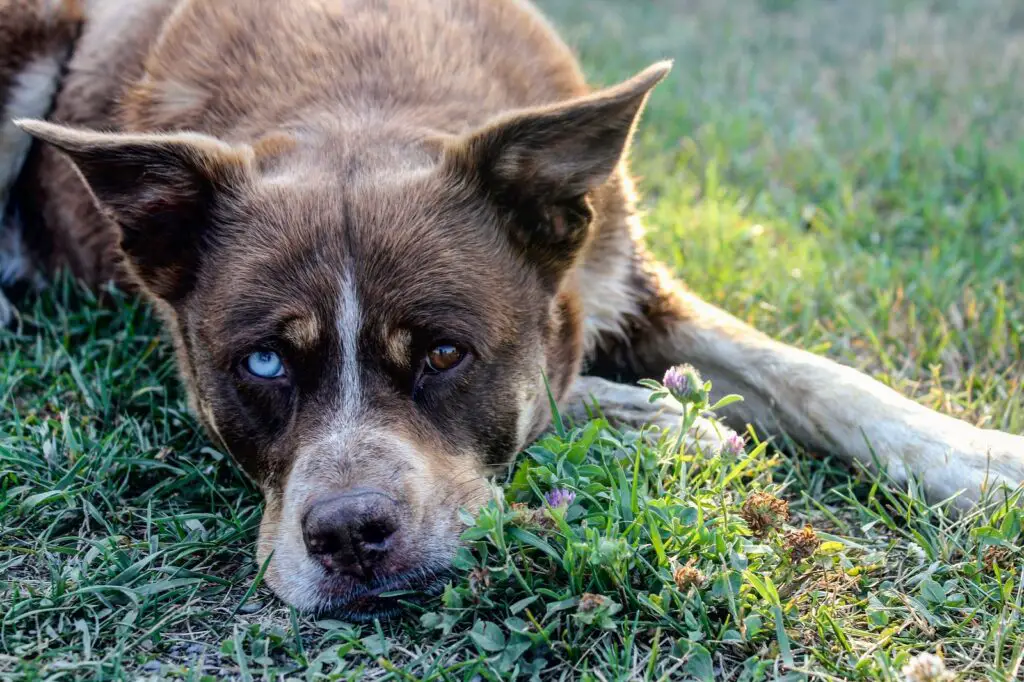
Even if the pet looks relatively lively at first, you should keep an eye out for subtler signs of a traumatic brain injury. Are your dog’s pupils different (a condition called anisocoria)? Or maybe they don’t seem to expand in lower light conditions? Does the pet have difficulty standing, walking, or maintaining balance? If the answers are “yes”, your dog may have a concussion.
In some cases, a dog might react by spinning in a circle looking confused, insecure, dull, or sedated. Canines with concussions may also experience problems keeping the musculoskeletal system under control. Their eyes will flicker or move back and forth in an unusual way.
Lethargy, disorientation, paralysis, falls, seizures, and vomiting are some additional symptoms of head injuries that can be signs of other serious physical disorders and illnesses. If you observe any of them in your pet, you should seek immediate medical attention to properly assess the situation.
What Should I Do If My Pet Gets a Concussion?
Even if your dog does not show any serious symptoms at first, a concussion should not be taken lightly. Have your dog examined by a vet in any case!
It is best not to go to the vet alone. Bring someone who can drive the car or take a taxi so you can look after your dog and keep an eye on it while you make your way to the vet. Stay calm and let your furry friend know that there is nothing to worry about. You can also wrap the dog in a warm blanket to give it some comfort. Your dog will likely be in shock, scared, and insecure. So be careful, as the animal could bite you out of emotion because it doesn’t know that you mean well. You can also remove your pet’s collar, as it may inhibit blood flow to the brain.
When transporting the pet, make sure that its head is raised higher than its hind legs. Keep its head elevated at approximately a 30-degree angle using a cushion or pillow. This will reduce the pressure in the skull and prevent the pet’s concussion from worsening. If the pet loses consciousness, open its mouth and gently pull its tongue forward to ensure that it can breathe, but always be careful when doing so.
Try to keep your pet as still as possible. You can even get a stretcher, wooden board, or another flat surface to get the dog in and out of the car safely. Since you don’t know what parts of the body may be injured, try to avoid manipulations with the dog’s body.
At the Vet
The vet will have a good idea of how severe your pet’s traumatic brain injury is based on the description of the accident and the pet’s condition. Veterinarians will typically shine a flashlight into the dog’s eyes and check whether the pupils react to it. The pup’s heart and lungs will also be checked to make sure that they aren’t affected. The vet will also make sure that the dog isn’t suffering from dehydration or low blood pressure. Since symptoms of concussion can develop very rapidly, the vet might want to observe the dog overnight.
An X-ray examination might be necessary to get information about the severity of the head injury. For example, it could be used to determine whether there is a skull fracture.
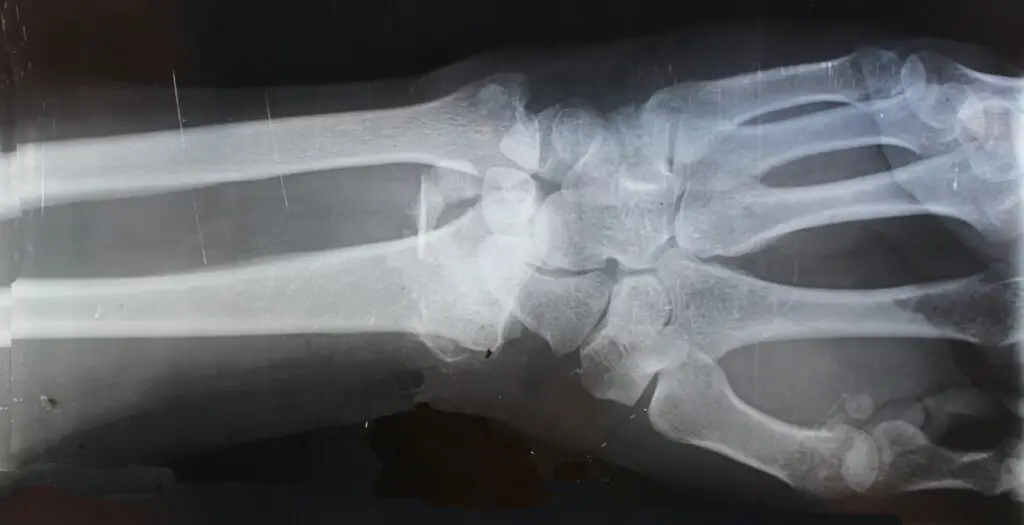
The doctor will also examine your furry friend for any other abnormalities. If the pet is responsive and reacts to stimuli normally, it’s likely that it experienced only a slight concussion that will probably heal on itself. If the pet seems quieter than usual but still reacts to stimuli, the condition is more serious. If only the strongest stimuli trigger a reaction in the dog, or if it is unconscious, the vet will act very quickly to administer appropriate treatment.
But try not to worry too much, if treated on time, a single concussion usually doesn’t result in long-lasting or severe damage.
Treating Concussions in Dogs

If your dog has a concussion, the vet will treat the symptoms of the condition. They can, for example, administer tranquilizers to counter the pet’s shock. There are also drugs that can reduce seizures and convulsions or relieve pain.
If the brain is swollen, the specialist will prescribe medication to treat it. The vet may also need to give your dog water or food through a tube or ventilate its lungs artificially if the pet’s consciousness is severely impaired. Slight tremors may only require rest and observation, while a skull fracture in which fragments of bone have become loosened will require surgery.
Preventing Concussions
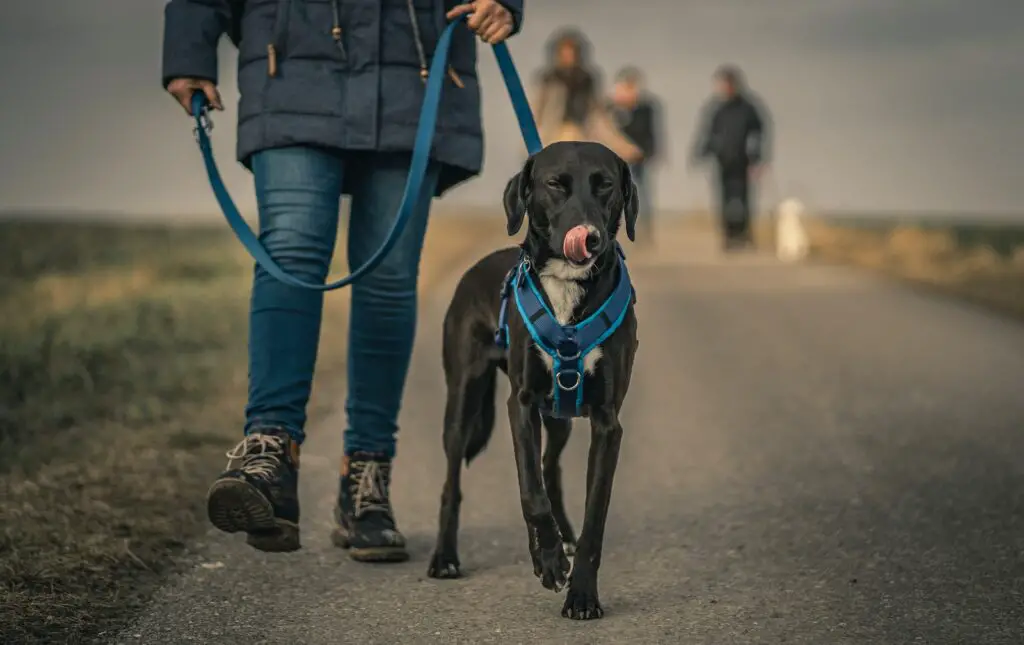
Although dogs are indeed inclined to get concussions, in most cases, they can be prevented. Concussions are not caused by a small blow to the head but rather by events such as car accidents, fights with other animals, or falls from a great height – the types of accidents that dog owners can prevent. Do not leave your dog unsupervised, keep it on a leash, in a fenced yard, or inside the house. Avoid walking the pet next to a road, and keep it away from unknown and aggressive dogs or high, unsafe places. Remember, prevention is the best treatment.
FAQ
How long does it take for a dog to recover from a concussion?
The recovery time is different in each individual case. However, full recovery usually takes at least 6 months.
What should I do if my dog hits his head?
Call your vet immediately. You will probably need to bring the pet to a veterinary clinic for an exam. When transporting your dog, it is important to keep its head a little higher than its hind legs. This can help relieve pressure in the skull.
How do you tell if a small dog is okay after a fall?
The following symptoms might indicate that your dog suffered a head injury as a result of a fall. If you don’t observe any of them, your pet is likely unharmed.
disturbed sense of balance and orientation
- insecurity and confusion
- different sized or dilated pupils
- flickering eyes
- stiff or limp limbs
- tremors or rapid breathing
- nose or ear bleeding
- vomiting
How can I treat my dog’s concussion at home?
A concussion is a medical emergency, and you need to call a veterinary clinic as soon as you suspect it. Do not try to treat canine concussions at home, as your dog might need surgery, IV fluids, and anti-nausea medication. If not treated in a timely manner, a concussion can lead to severe, long-lasting damage.
How do you tell if a dog has a concussion?
The most common signs of concussion are:
- difficulty maintaining balance or walking
- vomiting
- different sizes of pupils




